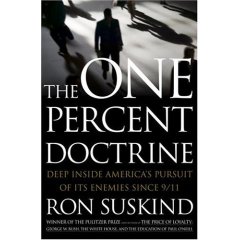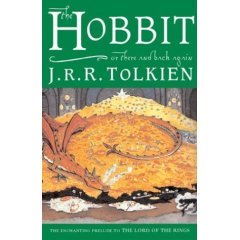QUICK TAKE: "The Terror Presidency" by Jack Goldsmith






The book is in some ways a mini-autobiography, followed by a detailed account of Dallaire's year in Rwanda. There are numerous instances of descriptions of the more gruesome events he witnessed, but it is not a catalog of attrocities. It is events as he experienced them, and clearly going through something so harrowing while simultaneously struggling day in and day out to do something - anything - to save people and stop the killing, he became numb for a while to much of what was occurring (though he paid for it dearly with post-traumatic stress disorder, alcoholism, and nightmarish flashbacks for years since).
Not insensitive though, not by a long shot. Dallaire strikes me as a fundamentally humble, decent, hard-working, and dedicated man. And utterly and completely color-blind, a through-and-through believer in the common humanity of us all. He grew up living between the French and English-speaking worlds of Canada and often found himself trying to be the conciliator or else someone castigated by both sides for failing to march to one extremist drum or the other. But he stuck it out and clearly his dedication to hard work combined with his genuine affection and caring for others is what turned him into an admired and respected leader in the Canadian military and ultimately as head of UNAMIR (the UN mission in Rwanda). He wouldn't and doesn't say that himself in his book, he is more apt to focus on his failings and point out where he is responsible for mistakes, but it shines through. With 100 generals like him running UN operations (if backed up by proper troops, political will, and logistics), an amazing amount of good and conflict resolution could clearly be accomplished in the world.
But back to the book. He runs through his life and Canadian military career pre-Rwanda, and then from his copious notes (and those of his dedicated staff) constructs an almost day-by-day account of what happened. What emerges is a story of multiple failures by almost every party involved in the conflict that allowed it to happen and play out as disastrously as it did. No one who screwed up escapes blame, the UN bureaucracy, the US, France, Belgium, NGOs, the pre-war Rwandan government, the rebel RPF force that became the new government, the Bangladeshi military (for pete's sake!), and many others. On the other hand, the men Dallaire commanded and many individuals and some organizations shine through as having remained tiny flickers of light in the darkest days. The Rwandan Red Cross somehow managed to keep operating throughout the conflict despite many of its workers themselves and the patients they were ferrying being massacred. The troops Dallaire commanded including an amazing pair of contingents from Tunisia and Ghana and many individuals from other countries saved thousands of lives, but the men were permanently scarred by the massacres they couldn't stop (sometimes right in front of their eyes) and some they even indirectly helped cause (being sent to a place to rescue someone, being unable to find them because they were hiding in fear of their lives, leaving, then coming back the next day to find the people slaughtered because the Interahamwe militia had seen the UN troops and realized someone was hiding there).

The results for me were eye-opening in a very positive way. Fair enough, there are criticisms that can be raised of Bushman's approach, some say he took kid gloves to some topics, others say he gives credence to accusations they don't believe. Personally, I think the only really fair criticisms (admittedly speaking as someone here who is not terribly steeped in primary sources from the era beyond the scriptures Joseph Smith produced) are those of which any good scholar who has produced a good work may be accused of: i.e., that as many questions are raised and left hanging as answered, that some minor points can be argued where the brevity necessary in any book required a more certain-sounding statement, etc. In other words, I find this a good, credible book and work of scholarship and would rather focus on what I learned than the minor concerns some folks would like to get all bent out of shape over.
So, what did I learn? Joseph Smith emerges here as a real human being to me for almost the first time. I won't say the first time, part of my faith has always seen some of his human foibles and struggles as an integral part of why I believe. But here, the full reality of Joseph Smith's personality and failings is laid out side-by-side with his accomplishments. A truly three-dimensional individual emerges. The man really did have a bit of a temper and hot-headed personality that sometimes caused him to act in ways that I probably would have had a tough time dealing with. But then in that way, I've had church leaders today that I've had the same struggles with. In both cases for me as a believer, I realize that I need to turn to higher spiritual principles and the guidance of the Holy Ghost to know how to act. I for one am glad to see Joseph Smith's place in the same spectrum of life as I live today rather than in some unrealistic deified sphere. A deified sphere is where I think he's gone to since and where I hope to get to, but there's not much point in pretending that he or anyone else who ever lived on the earth except Jesus was perfect in this life.
Another thing I always find valuable and which this book gives in spades is the breaking of false assumptions. Now, I'm not one to yell fire in a crowded theater and neither is Bushman: the point is not to say "you've all been duped, look at this stuff Joseph Smith did", but rather to say "here's a full account of what Joseph Smith did in life" and then let the reader sort out for themself what it means. So the subjects are handled in my view honestly and tactfully, and often-times with the questions of the meaning of it all and the why's left hanging where no clear answer is obvious. In other words those searching for either the debunking of certain claims about Joseph Smith (i.e., "he didn't really drink wine or marry already married women, right?") or a justification for them to use aren't going to find Bushman straining to force theories or answers where the evidence doesn't provide them. Instead Bushman is simply the honest scholar, laying out the historical record as best as he can and where no further answers are forthcoming he at best lays out a maybe or two or quite often says "I don't know based on the evidence available at present". That is honest, and that allows a reader like myself to come to these topics and explore them as best as possible with my own mind and theories.
Anyhow, a great read, eye-opening, not faith-destroying in any way for me but faith-building as I think I am in agreement with Joseph Smith himself in consider anything that gives me further knowledge faith-building even if it provides new challenges I have to sort through. Indeed, intellectual challenges if handled right are just like weights in the gym, they build strength when part of a broader strength-training program. For those who feel like this book was an expose which tore up their faith (of whom I think I know at least one), I honestly think they have misread the meaning of Joseph Smith's life and Bushman's attempt to give a comprehensive portrayal of it, but then that is far more a matter of an attitude of faith than of scholarship per se. As a work of scholarship quite aside from faith, I think believers and non-believers can learn a great deal from this book. As a believer, one can similarly gain a much greater understanding of the facts and history of Joseph Smith's era and then go on to build a more complete edifice of faith using that knowledge.

In the Belly of the Green Bird: The Triumph of the Martyrs in Iraq
by Nir Rosen
I’ve been a definite fan of Nir Rosen’s reporting from Iraq for several years now. Depending on your point of view, the guy either has a reckless disregard for his own life or nerves of steel. I’d vote for a bit of both as I think he would probably agree, having been the only western reporter getting the story from inside Falluja before the Americans flattened the town in late 2004 (a time when other westerners and lots of Iraqis were getting beheaded and tortured in the town). All the more incredible given that Nir is actually Israeli by birth, a fact which on its own you’d think would have been enough to get him killed anywhere he went in today’s Iraq. Credit his apparently excellent spoken Iraqi Arabic and his complete disavowal of Zionism for giving him the ability to get around and be trusted despite a background which typically would have excluded him from the places he’s been and reported well from.
So, given the guy’s amazing reporting, command of Arabic, wide-ranging travels in Iraq off of the typical western reporter’s beat, etc., I had high hopes for his book. Unfortunately, as with “Against the Gods”, I have to give it a mixed review and for somewhat similar reasons. First off, while Nir is a great reporter, he’s not an author and as with Bernstein it shows in a book that comes off as incoherent in aggregate and feeling much more like a series of anecdotes than a comprehensive whole. I’m not quite sure if the book was meant to be a history, a sort of memoir, a journalist’s travelogue, or some mixture. It just felt disjointed.
Also, as with “Against the Gods”, Nir’s writing seems quite lacking in an understanding of the broader historical context. For Bernstein, this meant a heavy western-centric focus on the notion of risk management, for Rosen it means the repetition of a lot of clichés about ‘eternal’ conflicts and how things have supposedly always been this way, how “Sunnis” have always been in charge and “Shia” always persecuted and lots of other broad-brush explanations for what is fueling the conflict in Iraq. Not that it’s hard to see why Nir might slip into this mode. I at least give him the credit for being on the ground where people speaking in raw, rough words and actions make it feel like the simple explanations have some merit. I contrast that with your standard Green Zone-based western reporter who hears some ignorant US military or State Department official parroting ignorant senior officials about Sunnis and Shiites and Kurds, and then just copies down the US government press releases verbatim calling it reporting. At least Nir was falling victim to the same mentality that most Iraqis were being slowly dragged into as opposed to parroting clueless USG officials (of course there is a link, US officials having basically unleashed the sectarian genie, but from a micro perspective of individual reporters that’s less the issue). Another reason Nir may have fallen into the trap is that at least from what is in the book, it appears he did spend most of his time with the more extreme elements. That is entirely appropriate on one level: it is the angry and violent men that rule Iraq today and who make things happen and they tend to have the most extreme view of things.
Still, also as with “Against the Gods”, the book remains a valuable read. It is at least a compilation of lots of anecdotes and stories from on the ground in Iraq. Nir attended many clerics sermons and sat down with lots of Mujahideen, tribal sheiks, clerics, US foot soldiers, and others. Even if I don’t necessarily trust his explanations and conclusions, the raw material he has gathered here offers a view of the war that few others are able to offer. Some have suggested this book is a critical "Iraqi viewpoint" companion piece to well-written books on the American experience in Iraq. I wish I could give that endorsement, but I can't quite. I can still recommend it though as attempting to be that and offering a lot of unique material, but it remains to raw and disjointed to really be "essential" reading.
Rosen has some maturing to do as a writer and as an analyst if he wants to move beyond (his excellent) magazine pieces, but at least he does have the raw material. I hope he grows in the right ways, because he could produce some very good material. Unfortunately, this book isn't there yet.

This book was a bestseller following it’s release in the 90s and one I’ve been meaning to read for sometime. Basically it purports to be a history of the concepts of risk and risk management, veering more and more over the course of the book towards financial risk management (though touching on health and other fields as it goes along). Author Bernstein has received all sorts of critical acclaim and so I came into this with high hopes. But, I have to give the book a mixed review.
Yes, Bernstein is the only one I know to have attempted to tackle this topic and it is a daunting one with its mixture of mathematics, personalities, and history. However, Bernstein is not a historian and it shows. Rather than feeling like a unified work with a solid thesis (theses) and a well-structured narrative, it comes across as a series of almost random anecdotal stories. I didn’t walk away feeling that I had a strong sense of how these concepts had truly evolved from one stage to another to finally bring us to the state of risk management today. Or maybe I should say, I walk away with only vague notions of how that occurred.
The other major criticism is Bernstein’s western-centric approach. He pays brief homage in the beginning to forebears of concepts of risk in other civilizations (Arabs, Indians, Chinese, Greeks, etc.) but ultimately dismisses them and their entire civilizations as having failed to grasp the key concepts. Now, not being a historian of risk, he may well be right, he may well be wrong. But I for one can’t help but think that given the heights other civilizations and their far-flung economies have reached in the past, that they may well have had a far more sophisticated understanding of risk management than Bernstein gives them credit for. I find the hypothesis that they had knowledge which was lost a far more plausible notion than Bernstein’s basic and poorly supported thesis that they simply never figured the basics out. That impression is made all the more powerful by the way Bernstein uses some pretty old-fashioned (and quite frankly erroneous in my view) notions about religious dogma and overwhelming belief in fate in various cultures as the root fault behind other civilizations’ supposed failures to achieve mastery of risk.
Ok, but those faults aside, it is still a book worth reading. If those problems are understood and kept in mind as one reads, the book still remains the only decent attempt I have ever heard of to write a history of how risk management as we know it today developed. I may walk away with mostly just anecdotes from it, but I at least have a whole lot of useful anecdotes I didn’t before!









I could literally go on and on (and already have to some extent), but I highly, highly recommend this book. He has a follow-up book I hope to read soon on the final era of Islam in Spain covering the 1500s until the final expulsion of all the Moors in the early 1600s.
On a final note: the book felt alive, real, like something happening today. Perhaps this is part of why Arabs have such an attachment to the idea of Granada and Al-Andalus: the destruction of Palestine is before them today and there is a historical precedent. I wish I could say that folks in the Arab world really understood what the loss of Granada was all about and the lessons it gives for Palestine. The truth I think is that many of the same weaknesses are at play, and many Arabs see this in the corruption of their leaders today and merciless foreign conquerors as occurred in the past, but over-zealousness internally is also an ongoing weakness. It seems the answers then were no easier than the answers today, but it does seem clear that Christians, Jews and Muslims all have a thing or two to learn about the importance of valuing the fruits of cooperation over those of conquest.

 Posted by J
Posted by J



A good read no doubt, Tolkien genuinely deserves a place in the pantheon of the great authors of western literature. Like a lot of people, I'm disappointed that the fantasy genre he wrote in is so easily dismissed by many literary critics. Scratch the surface just a little bit and the richness of his thought, skill, and art are boundless.